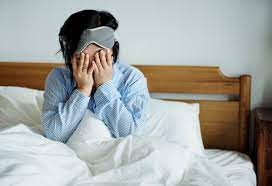
Insomnia happens when your body and mind cannot relax at night. Stress, anxiety, and depression often trigger this sleep disorder. Medical conditions like asthma, chronic pain, or acid reflux also make it hard to sleep. Poor habits such as late-night screen use or irregular sleep times can add to the problem. In many cases, sleep specialists can help identify the underlying causes and recommend effective treatments to improve sleep quality.
Some people struggle with shift work or frequent travel, which disrupts their body clocks. Others develop insomnia after big life events such as job loss, divorce, or grief. When the brain stays alert at night, restful sleep becomes difficult. These triggers may lead to short-term or long-lasting insomnia.
How Doctors Diagnose Insomnia
A doctor starts by asking about your medical background and sleep habits. You may need to track your sleep in a journal. This record helps spot patterns, such as late-night snacking or inconsistent sleep times. It also shows how long you stay in bed each night.
In some cases, your doctor may order a sleep study. This overnight test checks brain activity, breathing, and heart rate. It helps rule out other sleep disorders like sleep apnea. If mental health appears linked, a doctor may also suggest a psychological evaluation.
What Insomnia Feels Like
Insomnia causes more than just trouble falling asleep. People wake up often or too early and cannot return to sleep. They feel tired in the morning, even after lying in bed for hours. Poor sleep leads to low energy, poor focus, and mood swings.
Daytime symptoms often mirror mental exhaustion. People feel frustrated, impatient, or sad without clear reasons. Work, relationships, and personal goals start to suffer. These effects become worse the longer sleep problems last.
How Sleep Specialists Treat Insomnia
Sleep specialists create personalized treatment plans based on your specific symptoms and detailed sleep history to better address insomnia. Cognitive Behavioral Therapy for Insomnia (CBT-I) is often the first recommended approach to improve sleep patterns. This therapy helps you replace unhelpful thoughts and habits with healthier ones that support restful sleep. Many patients experience significant improvements through CBT-I without needing medication.
Your therapist may include techniques like sleep restriction, relaxation exercises, and consistent sleep scheduling in your treatment plan. Going to bed and waking up at the same time each day trains your body’s natural sleep rhythm. Lifestyle changes, such as avoiding caffeine, nicotine, and late meals, also play a key role. Creating a quiet, dark, and cool bedroom environment can further support better rest.
Consult a Sleep Specialist to Regain Control of Your Sleep Health
If sleep problems continue for more than a few weeks, consider speaking with a doctor or sleep specialist. Long-term insomnia can seriously affect your memory, mood, concentration, and overall physical health. Ongoing sleep loss may increase your risk for heart disease, diabetes, high blood pressure, and depression.
Addressing these issues early can prevent long-term complications and improve your quality of life. You don’t have to face sleep challenges alone; sleep specialists are trained to find personalized solutions that meet your needs. Start by tracking your sleep habits and noting patterns, which will help guide treatment. Sharing this information with your doctor is a key first step toward better rest.






